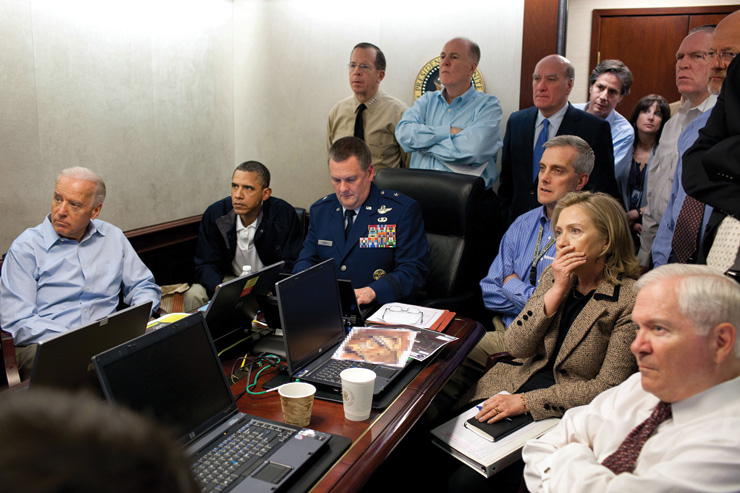Blacklisted
That word may conjure negative connotations, but for screenwriter Young Il Kim, making Hollywood’s Black List has been opening doors.
story by CHELSEA HAWKINS
photograph by INKI CHO
It started with a photograph. Screenwriter Young Il Kim, who penned, “Rodham,” the Clinton biopic currently making a buzz in Hollywood, says he was inspired to write about the former Secretary of State, after the release of the now-famous photo from inside the Situation Room following the assassination of Osama Bin Laden.
“All the men in the room were looking very stern, but Hillary Clinton—her mouth was covered [with her hand]—she was visibly shaken,” recalled Kim, during an interview in Los Angeles last month. “That’s when I remembered how, even though she was the third highestranking official in that room, she was also the only [high-ranking] woman.”
And that got the wheels in Kim’s brain turning. He also recalled seeing photos of a younger Hillary Clinton during husband Bill Clinton’s first run for president in 1992, and began to wonder what the couple was like during their formative years. He sensed there was a powerful story—but about Hillary Rodham, before she became a Clinton, the First Lady, a U.S. senator and Secretary of State.
“When you’re writing [about] someone who’s living, [about] someone whose story is not yet finished, you better do a lot of research,” Kim said, grinning. So he got to work. For five months he researched the Clintons, reading more than a dozen books on their personal and professional lives.
Prior to becoming a prominent politician, Hillary had aspirations to practice law in the nation’s capital. In 1974, a year after she had completed graduate studies at Yale Law School, she served on the advisory board for the impeachment of President Richard Nixon—ironically, the same proceedings her husband would go through, after the Monica Lewinsky scandal, Kim noted. Back then, Hillary worked with the Child Defense Fund in Massachusetts, and was recognized for her legal advocacy on behalf of children’s rights. But while Hillary was trying to build her legal career, her then-boyfriend Bill had returned to Arkansas to pursue his own political ambitions and run for a seat in the House of Representatives. Before leaving the Northeast, he asked for Hillary’s hand in marriage—which she initially declined.
“As I started to do the research, it really just became the personal journey of the woman who has her professional ambitions, which are keeping her in Washington, D.C., and her personal desires that are pulling her towards Arkansas,” Kim said.
Kim’s script, rooted in real-life events, also takes creative liberties. It shows us a young Hillary, who is more emotional and vulnerable than perhaps most people perceive her—and someone who is facing a difficult choice between her career and her relationship with a politically ambitious potential husband. Kim doesn’t see the script as political, describing himself as apolitical personally; rather, he was more interested in focusingon who Hillary was before she became the formidable political powerhouse she is today.

“Everyone has their own opinion of who she is, and part of the challenge when I wrote this was to shatter some of that bias,” Kim said. “I wanted her to be someone who is 27, someone who wants to play dress-up every now and then, wants to feel like a woman, but at the same time has this great ambition. … The Hillary today is very poised, but when you’re 27, you have no idea what you want out of your life.”
When asked how he would want Hillary to respond to the film if it were to make it to the big screen, Kim paused for a moment. “I hope she likes it,” he then answered, smiling. “I hope she manages to find a personal connection to it as a moviegoer, as I intended it for the audience. And, you know, perhaps she’ll laugh at some parts and be moved by others. … I would love to watch her watching the movie, you know? Gauge her reaction, moments she cringes, moments she laughs, and moments she cries.”
Reaction from industry people has meanwhile been very positive. “Rodham” caught the eye of a manager at Arlook Group, and before Kim knew it, he was flying from Bergen County, N.J., where he lives, to Los Angeles, meeting executives and talking with an industry representative. The script placed fourth on the prestigious Hollywood Black List, which ranks the favorite unproduced scripts of the past year, chosen by nearly 300 Hollywood executives. Films, such as Django Unchained, The Social Network and The King’s Speech, have appeared on the Black List in previous years. The script has since been picked up by Temple Hill Productions, best known for the Twilight saga.
“I’m in a very fortunate situation where ‘Rodham’ was very well-received in Hollywood,” said Kim, who immigrated to the U.S. on his 9th birthday. “But you can’t just rest on one script. You’ve got to keep on writing.”
And that’s exactly what he is doing. Kim, who received his MFA in screenwriting from the University of Southern California in 2004, was recently awarded a grant from the Sundance Institute, which funds the production of a math-or science-themed script. He will also be collaborating with other writers for a new television series, but Kim says he can’t say much more on the record.
Before “Rodham” created a stir in Hollywood, the screenwriter was getting attention for another script,Hyung’s Overture, about members of a dysfunctional Korean American family struggling to make their way in their adopted home of the Bronx. The film focuses on family dynamics, as the eldest son attempts to reconcile a strenuous relationship between his father and younger brother. Hyung’s Overturewas awarded a screenwriting prize by the Coalition of Asian Pacifics in Entertainment and also took home first-place honors from the BlueCat Screenplay Competition in 2006. Kim was able to then take that script and work with industry mentors as a fellow with the Korean Film Council’s Filmmaker Development Lab.
But, despite the accolades for Hyung’s Overture, which Kim assuredly says is the “best script I’ve ever written,” it’s unclear if or when it will make it to the silver screen.
Perhaps, given his experience with Hyung’s Overture and the unpredictable nature of the film industry, Kim is careful not to celebrate too soon over the interest in “Rodham.”
“By no means have I broken into Hollywood yet,” he said. “I’m starting to get the meetings and the attention. It’s really just starting.”
This article was published in the April 2013 issue of KoreAm. Subscribe today! To purchase a single issue copy of the April issue, click the “Buy Now” button below. (U.S. customers only. Expect delivery in 5-7 business days).







